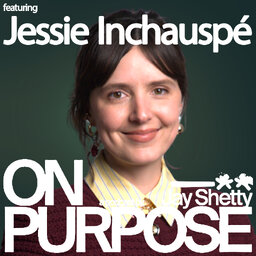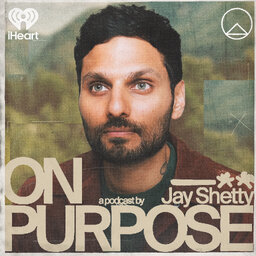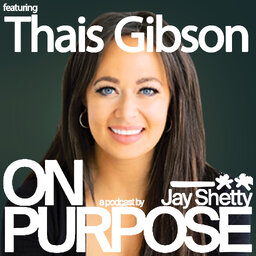Becky G ON: Finding Your Sense of Belonging & How to Masterfully Block Negativity and Rejection
Do you want to feel like you belong?
Do you want to block negativity and rejection?
In this episode we dive deep into what it means to step into your authentic self and the tools needed to do so.
Today, I welcome multi-platinum, award-winning singer, songwriter, actress, and activist Becky G. The 26-year-old global superstar's long list of achievements include four Latin GRAMMY nominations, four number one hits on the Billboard Latin Airplay Charts, and her debut album Mala Santa (October 2019) is certified 8X Platinum in the United States. In June, Becky released her latest single “La Nena” alongside Gabito Ballesteros giving fans another glimpse of what’s to come.
Becky G did not hesitate to dive deep into the heart of authenticity and self-discovery. We start by awakening to a deeper sense of self, shaking off those social constructs that keep us from being our authentic selves. It's a reminder that it's perfectly okay to embrace who we are and find happiness in that authenticity.
Throughout our conversation, we explore the importance of creating spaces where our uniqueness is celebrated, not just tolerated. We also touch on the idea that it's alright if not everyone likes us - what truly matters is staying true to ourselves.
In this interview, you'll learn:
How to tap into your authentic self
How to embrace your uniqueness
How to take risks for success
Why self-love is a must
How to be persistent in adversities
How stay focused on your goal
Join us on this journey of self-discovery and connection, where we celebrate the beauty of being our authentic selves in a complex world.
With Love and Gratitude,
Jay Shetty
What We Discuss:
00:00 Intro
01:41 An awakening for a deeper sense of self
02:48 The social constructs that don’t allow us to be our authentic self
04:27 The concept of not half of this and half of that
09:12 You gotta make yourself happy and stay rooted to your authenticity
12:31 We need spaces where our uniqueness is accepted
15:17 We all come from something so much bigger than us
19:13 Maybe it’s okay if we’re not liked by everybody
25:13 “You have to be willing to do something you haven’t done to get the result you never had.”
28:49 The three-legged table: the mind, body, and soul
34:54 How do you create quality connections?
37:23 “Just because you can, it doesn’t mean you should.”
39:59 Always have empathy and compassion for yourself
46:56 Sometimes a good cry is the best way to release pent up emotions
51:46 “Everything happens for you, not to you.”
58:13 The healing journey of relationships that has ended
01:01:27 Who do you share your failures and successes with?
01:09:29 Starting an acting career after empowered personalities
01:14:49 Finding mutual spaces where you can change and grow
01:17:53 How do you stay open to finding your purpose you have in life
01:20:06 Do you believe in guardian angels?
01:23:45 Did we lose our listening ability when communicating?
01:06:37 Becky G on Final Five
Episode Resources:
Becky G | YouTube
Becky G | Instagram
Becky G | Facebook
Becky G | TikTok
Becky G | Website
In 1 playlist(s)
On Purpose with Jay Shetty
My name is Jay Shetty, and my purpose is to make wisdom go viral. I’m fortunate to have fascinating …Social links
Follow podcast
Recent clips

Jessie Inchauspé: 90% of Pregnant People Are Missing THIS Nutrient (Follow THIS Simple Diet To Reduce Glucose Spikes & Protect Your Baby’s Brain & Metabolism)
1:12:12

Stop Trying to “Win” An Argument With Your Partner! (THIS Shift Will Turn Conflict into Communication)
38:35

Relationship Expert Thais Gibson: Do You Keep Attracting The Same Emotionally Unavailable Partner? (Use THIS Attachment Reset To Break The Cycle And Choose Better Partners)
1:44:33
 On Purpose with Jay Shetty
On Purpose with Jay Shetty